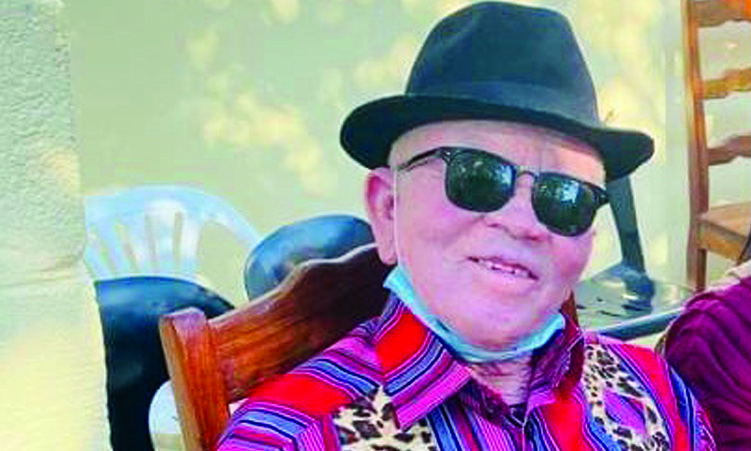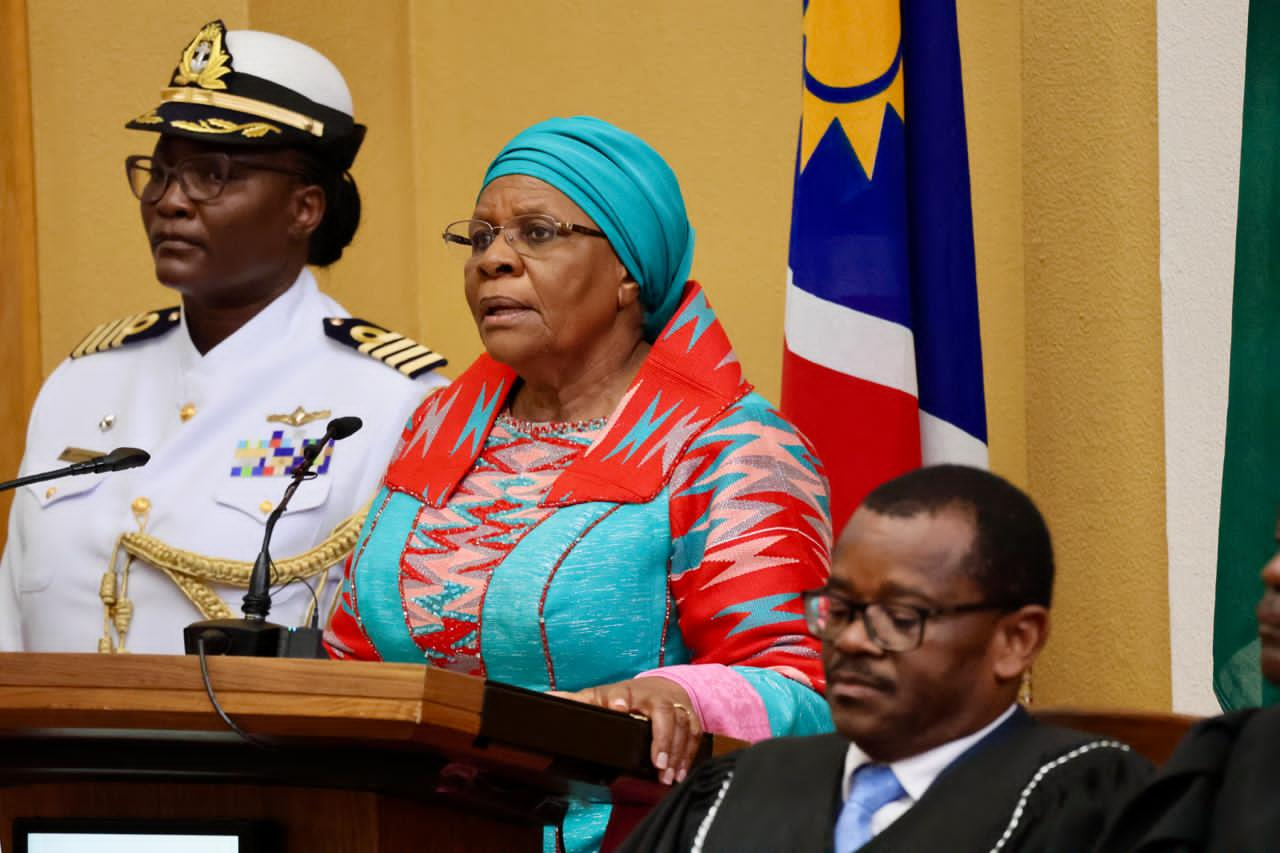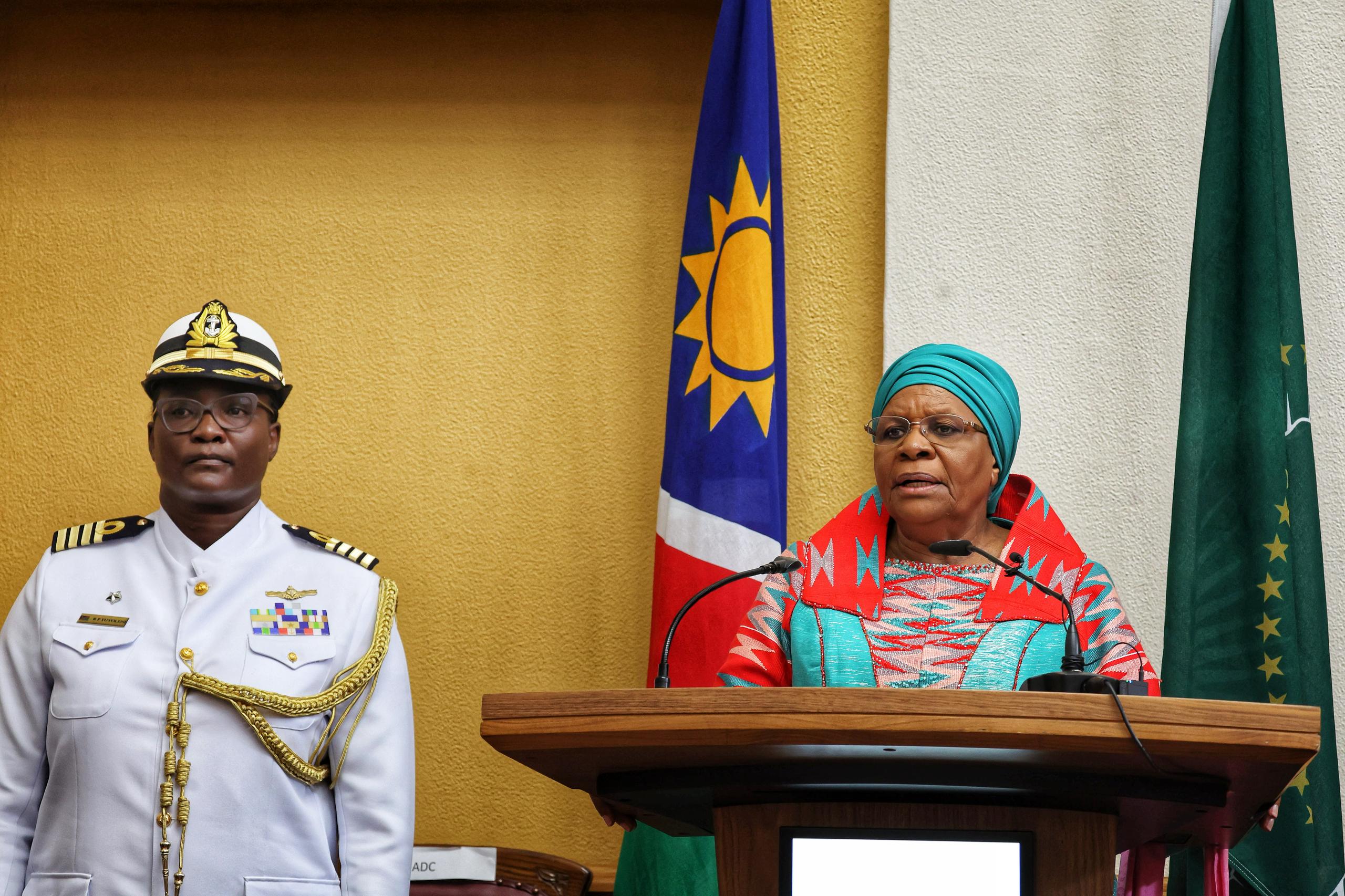Andreas Ndakukamo has always dreamed of becoming the chief of the Ongandjera Traditional Authority.
He says he has been preparing for this role his entire life.
He has served as an assistant to two previous chiefs, and he has an understanding of the history and culture of the Ongandjera people.
When the previous chief, Jafet Munkundi, died in 2012, Ndakukamo was the front-runner to succeed him.
But Ndakukamo says he missed out on the position in favour of his nephew, because he is a person with albinism.
Ongandjera Traditional Authority spokesperson Sakeus
Shangula, however, says the succession of the Ongandjera kingdom came from within the family of the king this year.
He says the sitting chief normally nominates successors.
“In this case, what we know is that the late chief nominated Johannes Mupiya, the current chief of the Ongandjera.”
Shangula says Ndakukamo has always been close to Munkundi.
“In some instances, he was the one delegated to speak at events on his behalf whenever the chief was unavailable to do so. So I think some family members probably noticed this and thought he would be the successor. So, this has nothing to do with the colour of his skin,” he says.
Ndakukamo (64), however, says he was sidelined by “jealous” senior traditional councillors.
He says he served as assistant to the late chiefs for 44 years and was assistant to chief Uushona wa Shiimi from 1969 to 1971.
At the time he was 11 years old.
Ndakukamo says before Shiimi died, he had appointed Munkundi as his successor. Shiimi was the uncle of both Ndakukamo and Munkundi.
Ndakukamo says when Munkundi took over, he served as his secretary for 41 years and was his close confidant.
“I have never heard about anyone being denied being a chief because of their skin colour,” he says.
Ndakukamo says another reason for not being chosen as successor was because he knows about the skeletons in some senior councillors’ closets.
He says he has the support of the community though.
In Ovambo culture, it is believed that a person who is blind or left-handed and a man whose wife or mother had given birth to twins cannot be chief, but Ndakukamo says this does not apply to the Ongandjera community.
“As long as you have been appointed as the heir to the throne, you can become the chief,” he says.
Retired Ongandjera Traditional Authority councillor Nahum Joel says Ndakukamo was named as the heir to the throne, but was later not considered suitable any more because of his skin condition.
Joel last month said the late Munkundi named Ndakukamo as his successor.
“We were told that because of his skin, he cannot be the chief,” Joel said.
Before, people with albinism were denied opportunities to serve as chiefs, he said.
“It doesn’t matter what the person looks like. Ndakukamo is an intelligent leader who loves people and has a good heart. He can rule the people,” Joel said.
It appears that Ndakukamo’s nomination to the throne was not only known within the borders of Ongandjera.
Oukwanyama senior traditional councillor George Nelulu last month said he was informed that Ndakukamo would be next in line after Munkundi.
Nelulu said after Munkundi’s death, he learnt that Ndakukamo could not be crowned as he is a person with albinism.
“There were stories that he could not become the chief because he has albinism,” he said.
Nelulu said there could have been other factors disqualifying Ndakukamo.
“Sometimes a person is disqualified based on their behaviour or leadership style,” he said.
A person with knowledge of Ongandjera culture said in the past a person with a disability could not become a chief.
President of the Namibia Albinism Association Trust (NAAT) Joseph Ndinomupya says Ndakukamo’s matter has not been reported to his office.
“People with albinism should not be discriminated against. We are against that and we want to know more. We will not tolerate this attitude,” he says.
A DISCRIMINATORY PAST
Uukwangali chief Eugene Kudumo says historically people with albinism were not allowed to be chiefs because they were thought to be ghosts.
“They were discriminated against all through history,” he says.
Kudumo says the Uukwangali Traditional Authority has never had a person with albinism as its chief.
Historian Kletus Likuwa says traditionally albinism is associated with bad luck, and babies with albinism were in the past killed after birth.
“People with albinism have always been sidelined,” he says.
EQUALITY
The secretary general of the Damara Traditional Authority, Abner Xoagub, says in the statutes and customary laws of his culture, people with albinism are not restricted.
“As long as the nominated candidates conform to the provisions stated,” he says.
The chief of the Zeraeua Traditional Authority, Manasse Zeraeua, says he has not seen a chief with albinism, but he believes people with albinism should not be discriminated against.
Mbunza Traditional Authority chief Alfons Kaundu says the Mbunza Traditional Authority does not discriminate either.
Ondonga Traditional Authority secretary Frans Enkali says people with albinism are allowed to serve on their authority.
He says when he was growing up in the 1960s, a headman near his village was a person with albinism.
“People with albinism are human beings too. We look at your capability and behaviour. If your character is not good, you cannot serve,” he says.
Batswana Ba Namibia senior headman George Sechogele says if there was a person with albinism in his royal house, this person could be chief if they qualified.
Stay informed with The Namibian – your source for credible journalism. Get in-depth reporting and opinions for
only N$85 a month. Invest in journalism, invest in democracy –
Subscribe Now!










